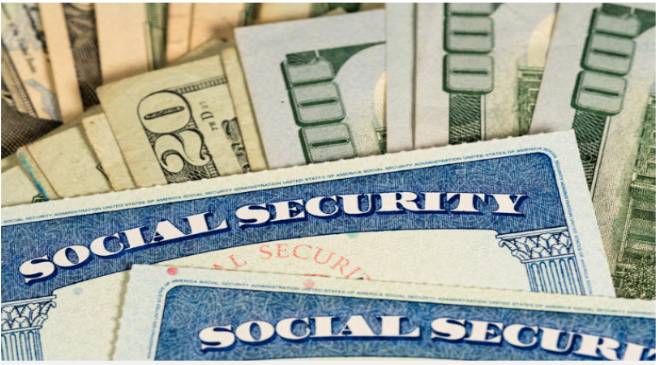Lawmakers now have enough signatures to force a vote on a bill that could raise Social Security benefits for some pensioners.
The Social Security Fairness Act was proposed to reverse the rules surrounding the Windfall Elimination Provision (WEP) and the Government Pension Offset (GPO).
Also Read– What interest rate cuts could mean for retirees
These two Social Security rules can reduce monthly payments for some pensioners, often leading to more financial obstacles when these retirees reach their golden age.
As of Thursday afternoon, the bipartisan Social Security Fairness Act had reached the 218 signatures required to force a vote on the bill that could benefit retirees who previously worked as public service employees.
That includes police officers, firefighters, teachers and other government employees often impacted by the WEP and GPO. Roughly 3 million Americans are anticipated to be affected by the WEP and GPO rules.
“We have taken on, on a bipartisan basis, something that’s just completely unjust, that has been going on for over four decades,” Rep. Garret Graves (R-LA) said, as reported by CNBC.
Also Read– RBI governor Shaktikanta Das has his task cut out as Fed surprises with a 50 basis point rate cut
“This is a situation where you have some of the most important occupations, some of the most important contributors to our community, that are being discriminated against.”
For some Americans, their pensions can lead to reduced payments if they aren’t “covered” because their employers did not withhold Social Security taxes.
“If your pension is from what Social Security calls ‘covered’ employment, in which you paid Social Security payroll taxes, it has no effect on your benefits. The vast majority of Americans work in jobs covered by Social Security,” AARP said on its website.
“But say you worked for and get a pension from a “non-covered” employer, one that did not withhold Social Security taxes, but you also did enough work in covered jobs to qualify for benefits.”
Representatives Abigail Spanberger, a Virginia Democrat, and Graves, a Louisiana Republican, originally filed a discharge petition this month that will open the door to the lawmakers forcing a vote.
While the WEP reduces the benefits of pension workers if they worked for a company that did not require them to contribute taxes into the program and impacts 2 million workers, the GPO sees more than 745,000 Americans have lowered benefits. For the GPO, that applies to spouses and widows who also bring in a pension.
The bill has a strong chance of passing in the House, but experts are less sure of its approval in the Senate, where it has fewer co-sponsors.
“Although the bill has gathered enough signatures to force a vote, similar efforts have failed in the past despite reaching this stage,” Kevin Thompson, a finance expert and the founder and CEO of 9i Capital Group, told Newsweek.
“I do not believe it will pass, as WEP was originally designed to prevent individuals from receiving Social Security benefits disproportionate to the amount they paid into the system. It was meant to align benefits with contributions.”
If passed, there would be some financial ramifications. The Congressional Budget Office predicted the change would cost $196 billion over 10 years. The Social Security Administration is already facing a funding shortfall that could see benefits lowered by as early as 2033.
Still, for the retirees who see nearly all of their Social Security benefits wiped out each month due to the WEP or GPO, it could be a significant financial game changer.
Also Read– Toyota enters V8 Supercars in huge development that was kept secret for more than a year
“Assisting this group by allowing them to access the full Social Security amount they’re entitled to would go a long way in helping them in their post-working years,” Alex Beene, a financial literacy instructor for the University of Tennessee at Martin, previously told Newsweek.










































